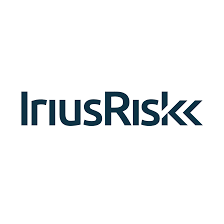The travel and hospitality industry, a vital part of the global economy, is undergoing significant changes driven by evolving consumer expectations, technological advancements, and the aftermath of the COVID-19 pandemic. As the sector rebounds and adapts, it faces both challenges and opportunities that will shape its future. In this blog, we explore the key trends influencing the travel and hospitality industry, the challenges it faces, and the opportunities for growth and innovation.
1. The Rise of Digital and Contactless Solutions
The pandemic accelerated the adoption of digital and contactless solutions in the travel and hospitality sector. From online booking and mobile check-ins to contactless payments and virtual concierge services, these technologies have become essential for enhancing guest convenience and safety.
Key Trends:
- Mobile Check-Ins and Keyless Entry: Hotels and airlines are increasingly offering mobile check-ins and digital room keys, allowing guests to bypass traditional front desk interactions.
- Virtual Concierge Services: Virtual assistants and chatbots are providing guests with real-time information and support, enhancing their overall experience.
- Contactless Payments: The use of contactless payment options is expanding, reducing the need for physical interactions and increasing transaction speed.
These innovations not only improve guest satisfaction but also streamline operations and reduce costs for businesses.
2. The Emphasis on Personalization and Customer Experience
Personalization has become a key focus in the travel and hospitality industry. Consumers expect tailored experiences that reflect their preferences and past behaviors. Advances in data analytics and artificial intelligence (AI) are enabling companies to deliver more personalized services.
Key Trends:
- Customized Recommendations: Hotels, airlines, and travel agencies are using AI to analyze customer data and offer personalized recommendations for accommodations, activities, and travel itineraries.
- Loyalty Programs: Enhanced loyalty programs that offer personalized rewards and benefits are becoming more prevalent, encouraging repeat business and fostering brand loyalty.
- Experiential Travel: There is a growing demand for unique and immersive travel experiences, such as local cultural tours, adventure activities, and wellness retreats.
By leveraging data and technology, businesses can create more meaningful and engaging experiences for their customers.
3. The Shift Towards Sustainable and Responsible Travel
Sustainability and responsible travel are increasingly important to consumers who are conscious of their environmental and social impact. The travel and hospitality industry is responding by adopting more sustainable practices and promoting eco-friendly options.
Key Trends:
- Green Certifications: Hotels and airlines are pursuing green certifications and implementing environmentally friendly practices, such as energy-efficient systems, waste reduction, and sustainable sourcing.
- Eco-Friendly Accommodations: There is a growing demand for eco-friendly accommodations that prioritize sustainability, such as eco-lodges and zero-waste hotels.
- Community Engagement: Travel companies are focusing on supporting local communities and preserving cultural heritage through responsible tourism initiatives.
By embracing sustainability, businesses can appeal to environmentally conscious travelers and contribute to the preservation of natural and cultural resources.
4. The Evolution of Health and Safety Protocols
Health and safety remain top priorities for travelers and hospitality providers. The industry has had to adapt to new health protocols and ensure that guests feel safe throughout their journey.
Key Trends:
- Enhanced Cleaning Protocols: Hotels and airlines are implementing rigorous cleaning and sanitation procedures to ensure guest safety.
- Health Screening: Some destinations and accommodations are incorporating health screening measures, such as temperature checks and health declarations, to minimize the risk of disease transmission.
- Flexible Booking Policies: To accommodate changing travel restrictions and health concerns, many companies are offering flexible booking and cancellation policies.
By prioritizing health and safety, businesses can build trust and confidence among travelers.
5. The Integration of Technology in Guest Experiences
Technology is playing a crucial role in enhancing guest experiences and operational efficiency. From smart room technology to immersive virtual tours, innovations are transforming the way guests interact with travel and hospitality services.
Key Trends:
- Smart Rooms: The use of IoT devices in hotel rooms allows guests to control lighting, temperature, and entertainment systems through their smartphones or voice assistants.
- Virtual Reality (VR) Tours: VR technology is enabling potential travelers to explore destinations and accommodations before making a booking decision.
- AI and Automation: AI-powered tools are being used for tasks such as personalized recommendations, customer service chatbots, and predictive maintenance.
These technological advancements are improving guest satisfaction and streamlining operations for businesses.
6. The Recovery and Resilience of the Travel Sector
The travel and hospitality industry has faced significant disruptions due to the pandemic, but it is on the path to recovery. The sector’s resilience and adaptability will be key to its future success.
Key Trends:
- Domestic and Regional Travel: With ongoing uncertainties around international travel, there is a growing focus on domestic and regional travel, with consumers exploring local destinations and experiences.
- Flexibility and Adaptability: Businesses are learning to be more flexible and adaptable in response to changing travel restrictions and consumer preferences.
- Innovation and Diversification: The pandemic has accelerated innovation and diversification, with companies exploring new revenue streams and business models, such as virtual events and hybrid experiences.
As the industry continues to recover, businesses that can adapt to new trends and challenges will be well-positioned for long-term success.
Conclusion: Embracing Change and Innovation
The travel and hospitality industry is navigating a period of transformation, driven by digital advancements, changing consumer expectations, and a focus on sustainability. By embracing these trends and innovations, businesses can enhance guest experiences, improve operational efficiency, and position themselves for future growth.
As the industry recovers and evolves, adaptability and innovation will be key to staying competitive and meeting the needs of the modern traveler. By leveraging technology, prioritizing sustainability, and focusing on personalized experiences, the travel and hospitality sector can continue to thrive in an ever-changing landscape.





























































































































































